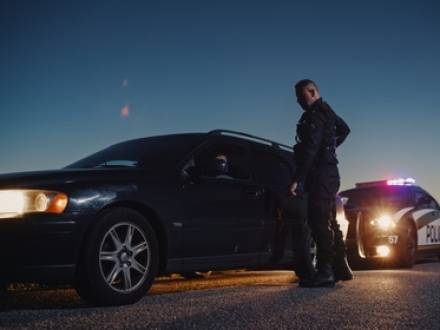Did the Police Have Probable Cause to Stop You for DWI?
 Most of us have heard of "probable cause" but may not be entirely sure of the rights afforded to U.S. Citizens under the Fourth Amendment. This Amendment provides protection against unreasonable searches and seizures. The definitions of probable cause and reasonable suspicion can be fairly subjective. If you have been charged with a Texas DWI and you believe there was no reasonable suspicion or probable cause to arrest you, it is time to contact an experienced Fort Worth DWI attorney from The Dameron Law Firm. Attorney Craig Dameron has more than two decades of experience and will aggressively fight DWI criminal charges on your behalf.
Most of us have heard of "probable cause" but may not be entirely sure of the rights afforded to U.S. Citizens under the Fourth Amendment. This Amendment provides protection against unreasonable searches and seizures. The definitions of probable cause and reasonable suspicion can be fairly subjective. If you have been charged with a Texas DWI and you believe there was no reasonable suspicion or probable cause to arrest you, it is time to contact an experienced Fort Worth DWI attorney from The Dameron Law Firm. Attorney Craig Dameron has more than two decades of experience and will aggressively fight DWI criminal charges on your behalf.
Reasonable Suspicion vs. Probable Cause in DWI Cases
The lack of reasonable suspicion or probable cause in a DWI case could potentially render all evidence collected by the officer invalid. In turn, if there is no valid evidence for the prosecutor to present, your attorney may be able to get your DWI charges reduced or dismissed entirely.
Reasonable suspicion is a lesser standard than probable cause and must include more than a hunch. To meet the burden of reasonable suspicion, specific and articulable facts must have been present, which led to a rational inference. Would another reasonable person, given the same training and the same set of circumstances, believe you were drunk by watching your driving behavior?
Probable cause is a higher standard than reasonable suspicion. Probable cause refers to a reasonable belief, based on facts and circumstances, that crime has been, is being, or will be committed, and that the person to be arrested or the place to be searched is connected to the crime. Probable cause is required for police to make an arrest, obtain a search warrant, or conduct a search without a warrant. It is a lower standard than beyond a reasonable doubt, which is required for a conviction, but it must be more than a mere suspicion.
What Are Some Indicators That Correspond with Reasonable Suspicion for a DWI Stop?
If a police officer sees you get into your vehicle and pull out of the parking lot of a bar on your way home, this is NOT sufficient reasonable suspicion to pull you over. The officer must have seen you commit a traffice violation like:
-
Drifting into another lane
-
Actively attempting to evade police
-
Making extra-wide turns
-
Nearly colliding with a fixed object or another vehicle
-
Driving erratically, including swerving, or weaving for no apparent reason
-
Failure to yield or stop
-
Driving on the shoulder
-
Driving excessively slow or over the speed limit
After the officer pulls you over, they are then looking for enough probable cause for an arrest. This probable cause can come in the form of one or more of the following:
-
A strong odor of alcohol
-
Excessively slurred speech
-
Bloodshot or glassy eyes
-
An inability to answer basic questions
-
Poor performance on a field sobriety test
-
A high BAC reading on the portable breathalyzer
If your attorney finds there was no reasonable suspicion or probable cause for your DWI arrest, he will bring the matter before a judge who will determine whether the evidence should be suppressed. The judge’s determination must be made based only on testimony and any physical evidence. The judge cannot view the police report before making this ruling.
Contact a Tarrant County, TX DWI Attorney to Schedule a Free Consultation
Attorney Craig Dameron will comprehensively review your case and then prepare a solid defense for your DWI charges on your behalf. The state should not benefit from an illegal stop or arrest. When you hire a Fort Worth, TX DWI attorney from The Dameron Law Firm to defend against your DWI charges, you have taken a very important step toward the best outcome possible. Call 817-222-0624 to schedule an appointment.

 817-222-0624
817-222-0624







